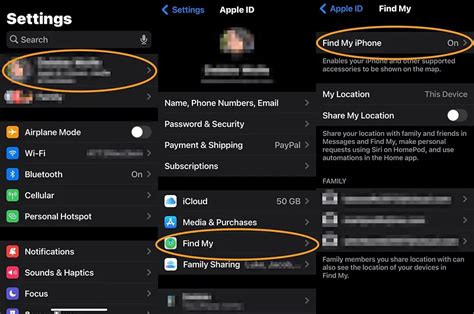How to Hide Your Location on iPhone: A Comprehensive Guide
Worried about your privacy and want to control who sees your location on your iPhone? You're not alone. Many people are increasingly concerned about location tracking, and thankfully, Apple provides several ways to manage and restrict this access. This guide will walk you through various methods to effectively hide your location on your iPhone, offering varying levels of privacy control.
Understanding Location Services on iPhone
Before diving into the how-to, it's crucial to understand how location services work on your iPhone. Apps request access to your location to provide features like weather reports, location-based recommendations, and navigation. However, this access can be controlled and significantly limited.
Key Concepts:
- Location Services: This master switch enables or disables location tracking for all apps on your device. Turning it off completely is the most privacy-focused approach.
- Precise Location: Many apps request precise location data. Restricting this to "While Using the App" significantly reduces tracking.
- App-Specific Permissions: You can individually manage location access for each app, giving you granular control over which apps can access your location and when.
Methods to Hide Your Location on iPhone
Here's a breakdown of the different methods, from complete location masking to more nuanced controls:
1. Turning Off Location Services Completely
This is the most straightforward method to prevent all apps from accessing your location. However, this will disable location-based features within those apps.
- Steps: Go to Settings > Privacy & Security > Location Services and toggle the switch to OFF.
Caution: Turning off Location Services completely will disable many convenient features. Consider using more granular methods described below for better control.
2. Limiting Location Access for Individual Apps
This provides more precise control, allowing you to selectively grant location access to only necessary apps.
- Steps: Go to Settings > Privacy & Security > Location Services. Scroll down and select individual apps. Choose from the following options:
- Never: The app will never have access to your location.
- While Using the App: The app only accesses your location while actively open. This is a great balance between functionality and privacy.
- Always: The app has constant access to your location, even when closed. Use this sparingly.
Pro Tip: Regularly review your app permissions and revoke access from apps you no longer trust or use.
3. Using a Fake Location (With Caution)
There are third-party apps that claim to offer fake GPS location capabilities. However, use these with extreme caution. These apps often require significant permissions and could potentially compromise your security. Their legality and impact on your device's warranty are also questionable. We strongly advise against using such methods unless you fully understand the risks involved.
4. Enabling "Share My Location" Carefully
If you want to share your location with specific contacts, use the "Share My Location" feature within the Messages app. Remember to end the location sharing when it's no longer needed. This method is preferable to always sharing your location through another app.
Optimizing Your iPhone's Privacy Settings
Beyond hiding your location, consider these additional steps to strengthen your iPhone's overall privacy:
- Regularly update your iOS: Apple regularly releases security updates that patch vulnerabilities.
- Use strong passcodes and Face ID/Touch ID: This protects access to your device and its data.
- Be mindful of the apps you download: Only download from reputable sources like the App Store.
- Review app permissions regularly: Check which apps have access to your data, including contacts, photos, and microphone.
By following these strategies, you can regain control over your location data and significantly enhance your iPhone's privacy. Remember that a multi-layered approach, combining these methods, provides the strongest protection.
